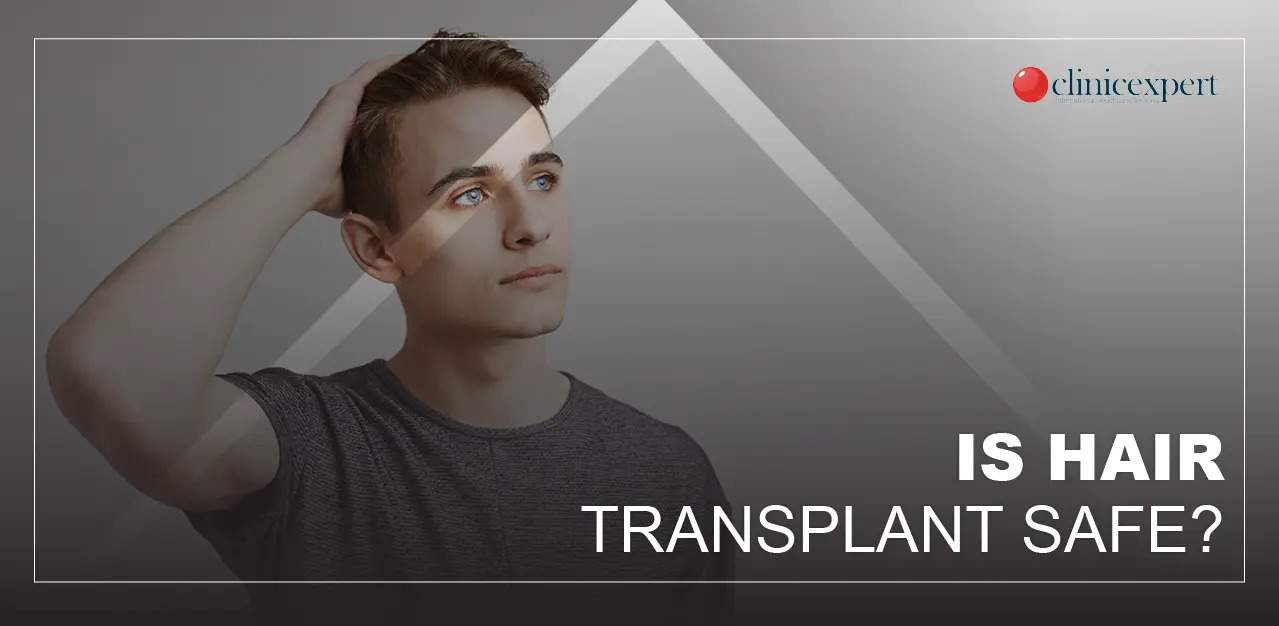Is Hair Transplant Safe?
Hair loss is a common issue affecting millions worldwide, leading many to consider hair transplant surgery as a solution to restore their hair and confidence. However, the question of safety is a critical concern for anyone thinking about undergoing this procedure.
Types of Hair Transplants
Hair loss affects millions globally, pushing many towards hair transplant surgery as a solution to regain hair and confidence. However, safety concerns are paramount for those contemplating this procedure. This article aims to address the safety of hair transplants, detailing the techniques, potential risks, success rates, and considerations for ensuring a safe, successful outcome.
Direct Hair Implantation (DHI)
DHI is a newer, advanced form of hair transplant technique that involves directly implanting hair follicles into the scalp using a specialized pen-like instrument. This method allows for precise control over the depth, direction, and angle of each implanted follicle, resulting in a more natural-looking hairline and density. DHI minimizes trauma to the scalp, reduces recovery time, and leaves no visible scars.
Follicular Unit Extraction (FUE)
In contrast, FUE extracts individual hair follicles from the scalp and implants them into balding areas. It’s less invasive than traditional strip methods, offering minimal scarring and shorter recovery times. FUE has become increasingly popular due to its effectiveness and natural outcomes.
The Safety of Hair Transplant Surgery
Performed by skilled professionals, hair transplant surgeries are generally safe. However, awareness of potential risks and side effects is crucial.
Potential Risks and Side Effects
Infection and Bleeding: Though rare, there’s a small risk of infection and bleeding. Selecting a reputable clinic and adhering to post-op care minimize these risks.
Scarring: DHI leaves no visible scars, while FUE scars are minimal and barely noticeable.
Numbness or Tingling: Temporary sensations in treated areas are common but typically resolve within months.
Folliculitis: Proper hygiene and care can reduce the risk of inflamed hair follicles post-surgery.
Unnatural-looking Results: The skill of the surgeon is crucial in achieving natural-looking hair. Research and select your surgeon carefully to avoid unsatisfactory outcomes.
Tips to Ensure a Safe Hair Transplant Procedure
Research and Choose Your Surgeon Carefully: Opt for surgeons with extensive experience and a portfolio of successful procedures.
Clinic’s Reputation and Standards: High standards of care and safety, along with accreditation and positive reviews, are key.
Understand the Procedure and Risks: Comprehensive consultations are essential to grasp the process, risks, and expected outcomes.
Follow Pre- and Post-operative Instructions: Adherence to your surgeon’s guidelines significantly influences the safety and success of your surgery.
Success Rates and Long-term Safety
Hair transplant surgeries generally show high success rates, with permanent, natural-looking results. Growth from the transplanted hair typically begins within months, with full effects visible in a year. Long-term complications are rare, underscoring the procedure’s efficacy and safety.
Is It Safe to Have a Hair Transplant in Turkey?
Turkey stands out as a leading destination for many seeking this procedure due to its reputation for combining quality with affordability.
The safety of having a hair transplant in Turkey largely depends on the clinic and surgeon you choose. Turkey is home to many world-class surgeons who specialize in hair transplant techniques such as Direct Hair Implant (DHI) and Follicular Unit Extraction (FUE). These surgeons often have international training and certifications, showcasing their expertise and commitment to providing safe and effective treatments.
Turkish clinics that cater to international patients maintain high standards of care and hygiene, using state-of-the-art medical equipment and following strict sterilization protocols. This adherence to global healthcare standards plays a significant role in minimizing the risks that comes with surgery and ensuring patient safety.
Is Hair Transplant Right for You?
Whether a hair transplant is suitable depends on your hair loss extent, health condition, and expectations. Consulting with a hair restoration specialist is crucial to determine your candidacy for the procedure.
Consult an Expert
Hair transplant surgeries, particularly with techniques like DHI and FUE, offer a safe and effective solution for hair loss, enhancing self-confidence for many. While any surgical procedure involves risks, choosing the right surgeon and clinic minimizes these risks, ensuring a successful outcome. Thorough research and a detailed consultation with a hair restoration expert are vital steps towards achieving safe, satisfying results.



